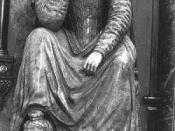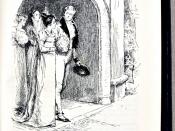In the Jane Austen's novels "Emma" and "Persuasion", a theme of key importance is class distinction. The social order of the characters is significant in understanding their position on society and also how they perceive themselves in relation to other characters and they also believe they have ideas and influence over others, making them superior to those they come in to contact with.
In "Emma" the story mainly revolves around the title character Emma Woodhouse and how events affect the title character. The opening line of the novel enlightens the reader;
"Emma Woodhouse, handsome, clever and rich with a comfortable home and a happy disposition"
The narrator informs the reader of this fact but ironically the sometimes omniscient narrator, Austen observes next to Emma allowing the reader to view purely throughout Emma's eyes. Therefore the description of Emma being "handsome, clever and rich" is exactly how Emma sees herself in Highbury and how she would like to be in control of situations.
Emma is used to having her own way and is first in Highbury society, a position she is proud of and wants to hold onto. Social standing is very important to Emma herself and she considers that she is useful to others below her status, namely an orphan called Harriet Smith. As their friendship develops, arrogance arises in Emma;
"As a walking companion, Emma had very early foreseen how useful she might find her"
Emma is using Harriet for her own gains and she has the power to summon Harriet, being fully aware of how Harriet feels about her. There is a certain irony of observation when Harriet gushes about her flourishing friendship with Emma and the narrator informs us simply that this,
"...made Emma feel that she had never loved Harriet so well, not valued...


